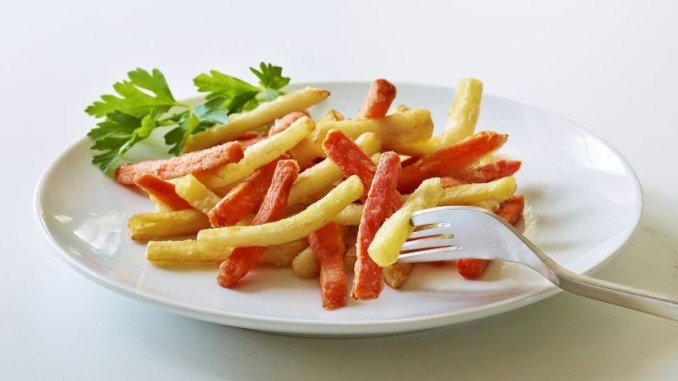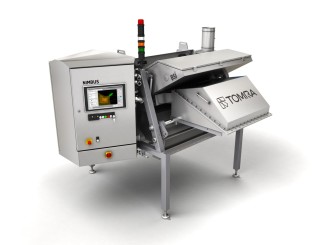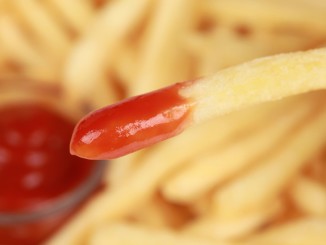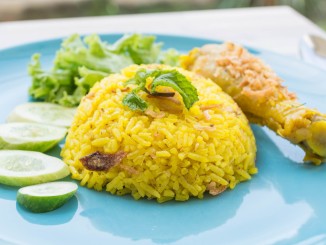
The Benelux countries represent important producers, as well as consumers, of frozen vegetables and potato products, reports Jonathan Thomas
Sales of frozen foods within the two major Benelux countries remain sizeable, and have held up fairly well despite the economic uncertainty still blighting much of the EU region. Although value and volume sales remain low compared with some of the region’s larger nations (e.g. Germany, France and the UK), both Belgium and the Netherlands remain important consumers of frozen foods and, in some instances, suppliers – both countries are significant producers and exporters of frozen vegetables and frozen potato products, for example.
Sales of frozen foods within the Benelux region are heavily skewed towards mainstream retail channels, such as supermarkets and hypermarkets. In recent years, however, the popularity of the likes of Aldi and Lidl has increased as consumers trade down to cheaper groceries – for example, Aldi now operates almost 900 outlets in Belgium and the Netherlands. For the same reason, own-label products have increased their share of the frozen foods market in both countries. According to PLMA International data, own brands currently account for 42% of Belgian food sales by volume, compared with 29% in the Netherlands. Most of the leading Benelux food retailers are present in the frozen category, with Belgium’s Delhaize having established the AB Cool Food chain (which specializes in the sale of frozen foods) in Romania during 2013.
Frozen Fish Is the Largest Sector in Belgium
In 2015, the Belgian frozen foods market was worth an estimated EUR1.07bn, having grown by around 6% within the last year. Volume sales amounted to 295,000 tonnes, or 27 kg per capita. Frozen foods remain an important staple for the majority of Belgian consumers, since many like to stock up with groceries during a major shop once or twice a week. If ice cream is excluded, frozen fish and seafood products represent the largest sector – within the last year, this category was worth an estimated EUR285m, equivalent to nearly 27% of the overall frozen foods market and growing by almost 3% per annum. Fish and seafood remains highly popular with Belgian consumers, with annual per capita consumption worth more than 25 kg. Belgium and the Netherlands remain important trading partners with each other as far as fish and seafood is concerned.
At approximately EUR300m, Belgian ice cream sales are also significant. In 2015, consumption at the take-home level was worth an estimated 95 liters, or almost 9 liters per capita. Other significant sectors within the Belgian frozen foods industry include frozen potato products and vegetables which accounted for a combined share of 22% within the last year. This is perhaps to be expected, given Belgium’s position as a major producer of these types of frozen goods.
Netherlands Close to EUR1bn in Sales
The Dutch frozen foods market is currently approaching EUR1bn at the retail level. Volume sales are worth an estimated 290,000 tonnes, or 17 kg per capita. The Dutch market remains slightly smaller than its Belgian counterpart, due to the fact that fresh and/or chilled products are preferred by many people. One of the largest and best-performing sectors has been ice cream, sales of which have been aided by warmer summer weather. In 2015, take-home sales were worth an estimated EUR400m, with consumption amounting to 115 million liters – this equates to almost 7 liters per capita. In recent years, more Dutch consumers have displayed a growing appetite for premium products, as well as ice cream carrying an ethical label (e.g. Fairtrade).
The Dutch frozen pizza market was worth an estimated EUR235m in 2015, or 23.5% of the overall sector. Although sales have traditionally faced stiff competition from chilled products, frozen pizzas have come be seen as value-for-money meal centers. The Netherlands also has a sizeable market for frozen coated meat and fish products, as is evidenced by Iglo’s extensive product range within this sector. Like pizza, sales of coated foods have been boosted by rising demand for convenient meal options.
The Netherlands is also one of Europe’s leading providers of vegetables, in both fresh and frozen format. The country represents the EU’s fifth largest grower of vegetables, and it is also a major exporter, especially of varieties such as onions, tomatoes and sweet peppers. Dutch sales of frozen vegetables were worth an estimated EUR80m in 2014/2015, equivalent to 8% of the country’s total frozen foods market.
Major Suppliers
Nomad Foods represents one of the leaders within the Benelux frozen foods market, on the strength of the Iglo and Findus brands which came together in 2015. Although the Benelux countries are not viewed as its largest and most significant markets, Nomad has performed well there within the last year, especially in the Netherlands. Although the Iglo brand is strongest within the frozen fish and seafood sector within the Benelux region, it is also present in categories such as frozen vegetables, frozen meat products and frozen ready meals. In Belgium, for example, the Iglo range has recently been extended with Steamfresh frozen vegetables, as well as breaded chicken cordon bleu portions (e.g. Ham & Cheese and Tomato & Basil). In both countries, new Iglo-branded fish fingers have appeared within the last few months. The last year has witnessed significant activity within the frozen snacks category in this part of Europe. During March 2016, McCain (which competes in the frozen potato products market with a range that includes oven chips and potato croquettes) announced it was acquiring a majority stake in Van Geloven, a Dutch-based supplier of frozen snacks with a turnover worth EUR197m. Van Geloven, whose frozen snacks are supplied to retail and foodservice customers under brands such as Mora and Bourgondier, was formerly owned by TowerBook Capital Partners, which retains a stake in the business.
This followed on from news in late 2015 that another Dutch producer of frozen snacks, Izico (which is owned by the private equity firm Egeria) was acquiring Daloon of Denmark, which also operates a unit in the UK. Izico’s range of frozen snacks includes spring rolls and hamburgers, which appear in the retail and foodservice industries. Izico owns two production plants in the Netherlands, with an additional facility in Belgium, and its brands include Beckers and Bicky.
The Benelux region is home to some of the EU’s leading suppliers of frozen vegetables. One example is Ardo, which is headquartered in Belgium and operates 20 production and packing sites throughout Europe. Its frozen vegetables are exported to regions such as Africa, the Middle East, North and Latin America and the Australasian countries. Between 2010 and 2014, the company’s sales volumes rose from 600,000 tonnes to 805,000 tonnes, and its customers span the retail and foodservice sectors. Until the early stages of 2016, it operated in the Spanish Ultracongelados de la Ribera (UCR) joint venture with Bonduelle, but it has since acquired its former partner’s 50% stake. Ardo’s range of frozen vegetables includes the Express brand of pre-cooked vegetables and vegetable mixtures, as well as Bio Organic (a range of organic frozen vegetables) and A Table, prepared products aimed at the convenience market in varieties such as Vegetable Medley and Creamed Leeks. The company also supplies frozen fruits (e.g. berry fruits, apples, rhubarb and banana puree), as well as Les Tapas, a range of frozen vegetable-based snacks and appetisers. Examples include breaded and battered onions, broccoli nuggets, spinach burgers and vegetable fries.
Also based in Belgium is Pinguin Foods, which claims to be the world’s second largest supplier of frozen vegetables. It is a division of the Greenyard Foods Group, which has a turnover worth EUR3.9bn and encompasses other businesses such as Univeg, Noliko and Peltracom. According to Pinguin, it processes over 400,000 tonnes of vegetables per year, of which carrots, green beans, peas, spinach and sweetcorn account for more than 70%. The company manufactures in France, Belgium, Poland, Hungary and the UK, and sells its frozen vegetables to customers in the retail, foodservice and industrial sectors.
Elsewhere, some of the world’s major suppliers of frozen potato products are based in the Benelux countries. One example is Lamb Weston Meijer, which has its headquarters in the Netherlands and services the EMEA region. At present, the company forms part of ConAgra Foods – however, ConAgra announced plans to spin off the Lamb Weston business in the second half of 2015. This process (which is expected to be completed by the autumn of 2016) will create a global business with a turnover worth USD2.9bn. Lamb Weston Meijer owns five production facilities in Europe, three of which are located in the Netherlands. In September 2015, it inaugurated a program of expansion at its Kruiningen site. The company supplies customers in the retail and foodservice industries, and also manufactures for the own-label sector. Its range of frozen potato products includes Twisters, Potato Dippers and Fries, while it also manufactures dehydrated potato flakes.
The Dutch agro-industrial co-operative Royal Cosun owns Aviko, which claims to be the world’s fourth largest processor of potatoes. Aviko – which processes some 1.7 million tonnes of potatoes per year – has a production site in Belgium, in addition to facilities in Germany, Sweden, Poland and China. Potato products are supplied in frozen, chilled and dehydrated varieties.



